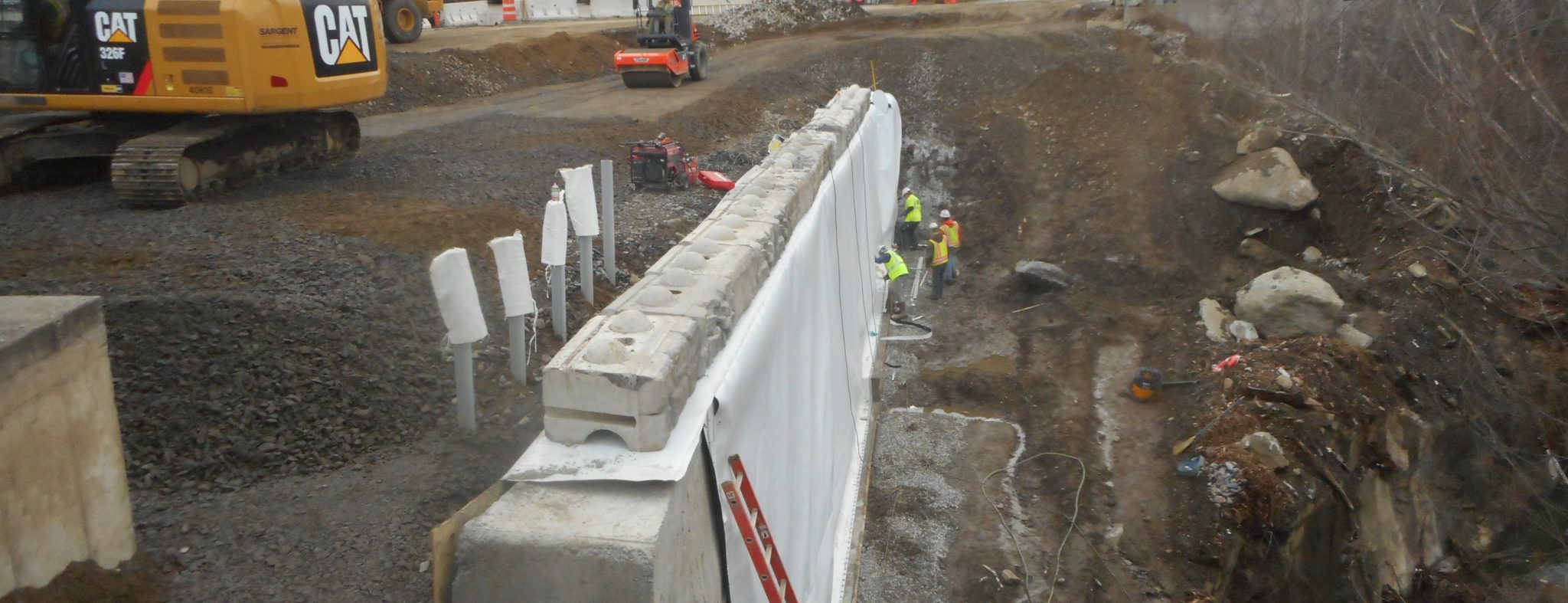Geo Tech Engineer: Enhancing Site Analyses with Advanced Geotechnical Techniques
Geo Tech Engineer: Enhancing Site Analyses with Advanced Geotechnical Techniques
Blog Article
The Interdisciplinary Approaches in the Geotechnical Industry: Linking the Void In Between Engineering, Geology, and Environmental Scientific Research for Optimum Project Results
The assimilation of design, geology, and ecological science within the geotechnical market is not merely advantageous; it is critical for attaining optimum task results. What methods might emerge to facilitate this essential cooperation and boost the efficiency of geotechnical techniques?
Relevance of Interdisciplinary Cooperation
The relevance of interdisciplinary collaboration in the geotechnical market can not be overstated. Efficient geotechnical jobs call for the combination of diverse proficiency from various areas, consisting of engineering, geology, and ecological science. This cooperation makes certain that all elements of a project are taken into consideration, causing extensive solutions that attend to complicated obstacles.
Interdisciplinary cooperation fosters technology by making it possible for specialists to share insights and techniques that may not be noticeable when operating in seclusion (geotechnical engineers). By leveraging the staminas of numerous disciplines, teams can determine potential dangers, enhance layout processes, and enhance the sustainability of geotechnical jobs. Such partnership advertises an alternative understanding of site-specific problems, which is crucial for precise evaluation and decision-making.
The complexity of geotechnical projects demands a coordinated approach to analytic. When engineers, geologists, and environmental researchers interact, they can create a natural strategy that aligns technological needs with ecological factors to consider and governing compliance. This synergy not only boosts job outcomes yet likewise adds to the long-lasting resilience of framework. Eventually, interdisciplinary collaboration is essential for progressing ideal techniques and achieving excellence in the geotechnical industry.
Key Roles of Each Discipline
Cooperation amongst numerous techniques is not just advantageous; it is essential for the successful execution of geotechnical jobs. Each technique-- design, geology, and ecological science-- plays an unique yet interconnected duty that adds to project efficacy and sustainability.
Geotechnical engineers are largely responsible for developing foundations and making sure architectural honesty. They analyze soil and rock properties to evaluate load-bearing capabilities, offering necessary information for secure building and construction techniques. Their experience makes it possible for the solution of cutting-edge solutions to complex challenges.

Environmental scientists analyze the prospective impacts of construction on ecosystems and water sources. They carry out environmental analyses and develop reduction approaches to reduce adverse results. By integrating eco-friendly factors to consider, they guarantee conformity with policies and advertise sustainability throughout the job lifecycle.
Study of Effective Integration
Effective integration of geotechnical self-controls can be exemplified through different study that highlight the effectiveness of team effort in dealing with intricate design difficulties. One notable example is the building and construction of the Hong Kong-- Zhuhai-- Macau Bridge, where a collaborative method entailing geotechnical design, geology, and environmental scientific research was critical. Designers and geologists worked in unison to evaluate the seabed conditions and maximize the structure design, making certain stability and lessening ecological impact.
One more impactful situation explanation is the renovation of slope stability in the San Francisco Bay Area, where an interdisciplinary team integrated geotechnical analysis with ecological analyses. By incorporating hydrological research studies and geological surveys, the group properly recognized potential landslide risks and executed efficient reduction actions, boosting safety and sustainability.
Additionally, the redevelopment of Brownfield sites usually requires a multidisciplinary approach. In one situation in Chicago, cooperation among geotechnical engineers, environmental scientists, and urban planners led to the effective removal of infected soil, permitting for the secure makeover of the website right into a neighborhood park. These situation studies illustrate that interdisciplinary collaboration not only addresses technical difficulties but likewise cultivates cutting-edge solutions that benefit both communities and tasks.
Difficulties in Multidisciplinary Projects

In addition, collaborating routines and operations amongst various teams can be problematic, especially when each self-control has one-of-a-kind task milestones and deliverables. This misalignment can result in delays and boosted expenses. The difficulty of source appropriation additionally impends large; guaranteeing that customized knowledge is offered at essential junctures calls for mindful planning and foresight.
Finally, regulative compliance presents one more considerable difficulty. Each self-control may face different governing frameworks, and lining up these needs to satisfy task objectives can be complicated and taxing. Attending to these difficulties necessitates solid management and efficient communication approaches to cultivate partnership and guarantee that multidisciplinary teams function cohesively towards shared goals.
Future Trends in Geotechnical Practices
As the geotechnical sector progresses, emerging fads are reshaping practices to resolve the difficulties dealt over at this website with in multidisciplinary projects - tailings engineer. One significant fad is the boosted combination of innovative modern technologies, such as fabricated intelligence and artificial intelligence, into geotechnical evaluation and design. These modern technologies improve predictive modeling and danger assessment, allowing engineers to make even more educated choices throughout the job lifecycle

In addition, the adoption of digital twins and real-time tracking systems is ending up being extra prevalent. These tools facilitate ongoing evaluation of soil conditions and architectural performance, permitting prompt treatments when problems emerge.
Verdict
In verdict, the integration of design, geology, and ecological science is vital for attaining ideal outcomes in the geotechnical industry. Effective situation studies illustrate the advantages of this technique, while acknowledging the difficulties faced in multidisciplinary tasks.
The assimilation of engineering, geology, and environmental science within the geotechnical industry is not merely useful; it is necessary for attaining optimum job results. Effective geotechnical projects require the assimilation of varied knowledge from various areas, including design, geology, and environmental scientific research.Navigating the intricacies of multidisciplinary jobs in the geotechnical industry provides numerous significant obstacles.As the geotechnical industry progresses, arising patterns are improving practices to resolve the difficulties encountered in multidisciplinary projects. Geotechnical Extra resources engineers are significantly working together with ecological researchers to guarantee that jobs straighten with sustainability objectives and comply with regulative demands.
Report this page